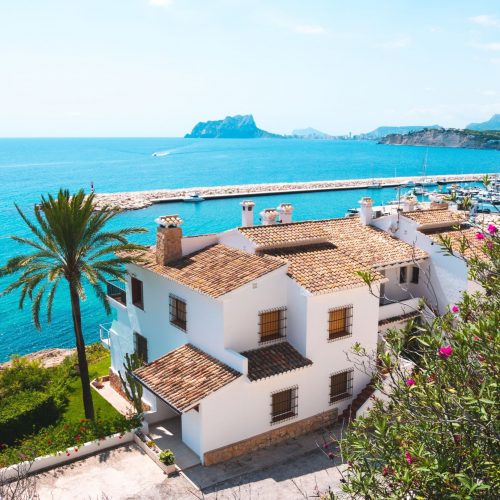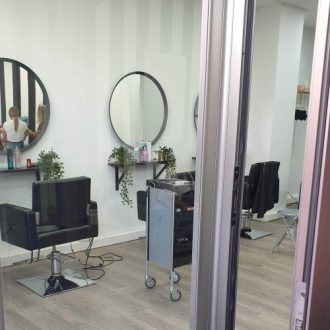
Top Three Things to Consider Before Relocating to Spain
If you’re a regular reader of our blog, you know that we’ve provided tons of resources over the years that dive into the personal experiences of expats, tips to help you prepare mentally and emotionally for an international experience, and some specifics on how to prepare things like your prescriptions, banking, and student loans before moving abroad for a short-term stay. However, today we would like to welcome to the blog guest writer, Christopher Nye whose expertise lies in more permanent moves abroad.

After writing a popular column in Mallorca in the 1990s, on his return to the UK Christopher Nye became features writer and property hunter for A Place in the Sun magazine, helping many British people to move abroad. He is now Senior Content Editor for Property Guides and Your Overseas Home. Chris has also written guidebooks to Mallorca, the Greek Islands, and adventure travel. He specializes in Greece, Spain, and the USA, covering everything related to buying a property and moving overseas.
Chris knows the overseas property business inside out and so we are excited to share with you his insights into the logistics of such a move. Without further ado, let’s hear what Chris had to say…
The Top Three Things to Consider Before Relocating to Spain
From visas and healthcare to the hidden costs of buying a property abroad, there is a lot to consider when relocating to Spain. Christopher Nye, senior content editor at Property Guides, shares his top tips for a successful move.
 Visas
Visas
Without a visa, non-EU citizens, such as the British, can only enter Spain as ‘tourists’ and must adhere to the ’90-day rule’. Put simply, non-EU citizens can only stay in Spain for 90 days in a rolling 180-day period. After which, they must leave the entire Schengen Zone, not just Spain.
So which visa do you need to live in Spain? There are several different options available, depending on your circumstances.
Work visas
If you plan to live and work in Spain, you will need a working visa. This can be tricky, and you generally need to have a job offer from a Spanish employer already. This is because the Spanish employer must apply for the work visa on your behalf. They must be able to prove that your role falls under the ‘shortage occupation/highly-skilled’ category and that they could not find an EU citizen to fill the role.
Another route to working in Spain is through the golden visa. This allows you to legally work without an existing job offer; however, it requires significant investment in the country. Some ways to obtain the golden visa include purchasing a Spanish property worth at least €500,000 or by depositing €1 million in a Spanish bank account or in shares of a Spanish company.
Non-working visa
If you don’t plan to work in Spain it is much easier to get a visa. Spain offers a non-lucrative visa which allows you to be resident in Spain but does not allow you to work there. This visa is great for those who are retired or who live in Spain but work remotely for a company in a different country.
To apply for the non-lucrative visa, you will need to prove you have taken out private health insurance and that you have enough funds to support yourself in Spain. For a single person, you currently need to have just over €27,000, whereas a couple needs around €35,000.
 Healthcare
Healthcare
As mentioned, you must take out private health insurance before you apply for a Spanish visa. However, once you become a resident, there are several ways to access Spain’s public healthcare system if you wish.
The Spanish healthcare system is of extremely high quality with the World Health Organisation ranking it as one of the best in the world. Most public healthcare services are free in Spain and all residents can access it through social security contributions.
If you are working in Spain, these social security contributions are deducted from your wages. If you are not working, you can still access the public healthcare system by making monthly voluntary contributions via the convenio especial (a pay-in scheme for public health care services).
However, if you are of pensionable age and receive a UK State pension, you can actually receive free public healthcare in Spain paid for by the UK government. All you need to do is fill in an S1 form.
Hidden costs when purchasing property
One of the first rules of buying a property overseas is that the price you agree to pay for a property is not the total amount you will have to pay. So, when deciding on a budget for your Spanish property, it’s important to factor in the additional costs you may come across during the buying process.
 These will include legal fees, the cost of a survey on the property and local and international taxes. You will also need to consider your ongoing costs, such as utility bills, insurance and maintenance.
These will include legal fees, the cost of a survey on the property and local and international taxes. You will also need to consider your ongoing costs, such as utility bills, insurance and maintenance.
Generally, allow between 10-15% of the total cost of your purchase to cover the different fees and services. It can be a good idea to enlist the help of an independent financial advisor to ensure you don’t get caught out.
Another thing to keep in mind is fluctuating exchange rates which can potentially increase or decrease the price of your Spanish property by thousands of pounds. You will be paying for the property in sterling at a euro price, so if sterling strengthens or weakens between the date you agree a price and the date the money changes hand, the price in pounds may end up higher or lower than you expected. Consider using an overseas currency specialist, such as Smart Currency Exchange, to mitigate the risk of currency fluctuations.
Thank you so much to Christopher Nye and The Property Guides for this guest post. If you would like to check out more of Chris’s writing and all the resources The Property Guides has to offer, you can find the website here.


Related Posts

How to Get a Student Visa to Study in Spain
April 13, 2023
3 days in Barcelona: Travel Tips by Founder of Spanish AI Travel Planner
January 25, 2024